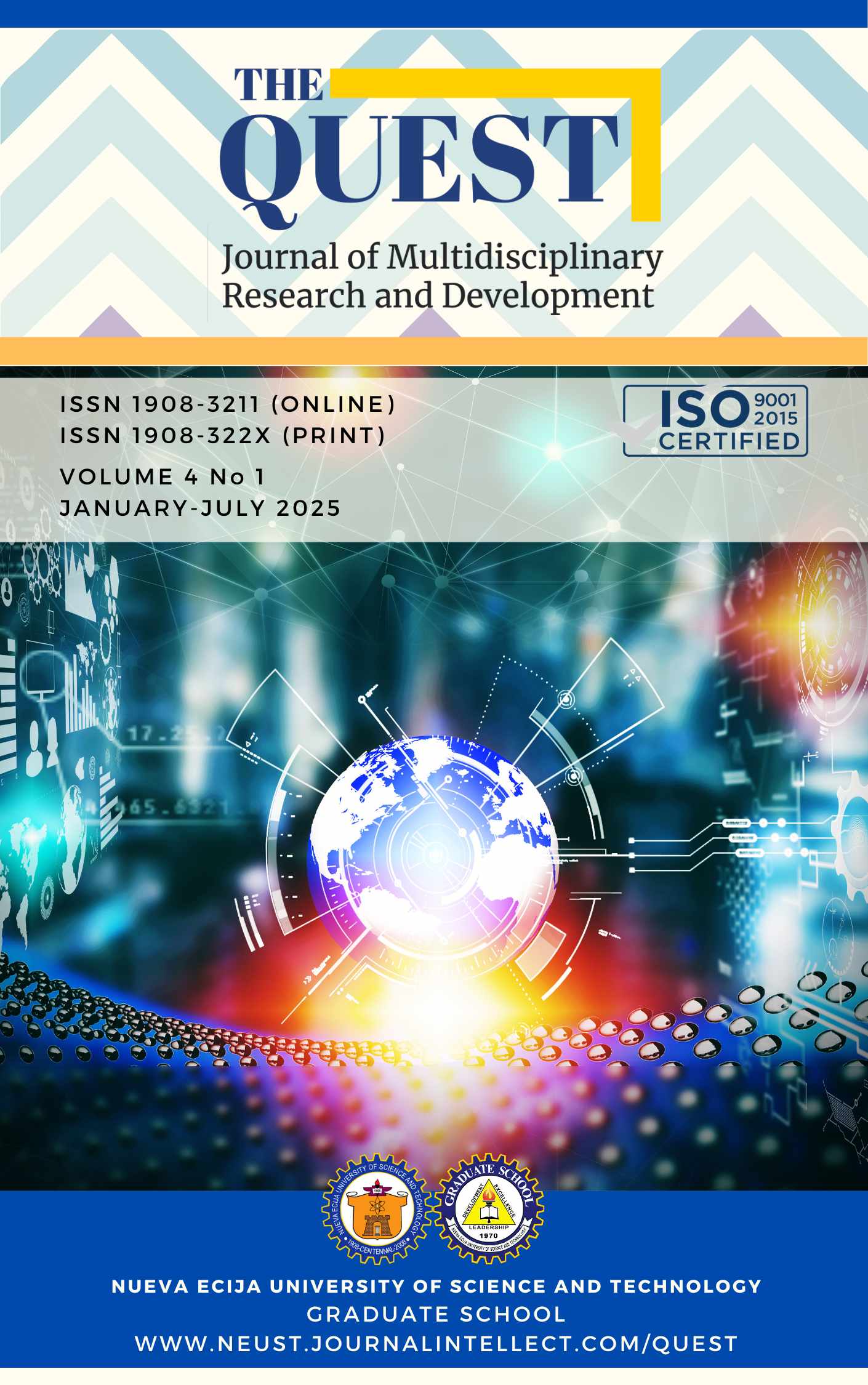Parental Sentiments and Experiences with Sinugbuanong Binisaya Grade 2 Mathematics Modules

Published 06/30/2025
Keywords
- Grade 2 mathematics modules,
- Parents’ experiences,
- Parents’ sentiments,
- Sinugbuanong Binisaya
How to Cite
Copyright (c) 2025 The QUEST: Journal of Multidisciplinary Research and Development

This work is licensed under a Creative Commons Attribution-NonCommercial 4.0 International License.
Abstract
This study investigated the parents’ sentiments and experiences in helping their children with Grade 2 Math modules in their native language, Sinugbuanong Binisaya. The research used a qualitative approach to understand these sentiments and experiences. Parents faced challenges due to unfamiliar mathematical terms in Sinugbuanong Binisaya, creating a language barrier for both them and their children. Additionally, some parents preferred English instruction due to concerns about their children's future academic and professional success. Despite these difficulties, the study also revealed positive aspects. Parents showed remarkable resourcefulness in supporting their children's learning. They found creative solutions like seeking help from family and friends, using online resources, and even implementing their own teaching methods. The experience led to a newfound appreciation for teachers' hard work and the challenges they face. This creates an opportunity for stronger collaboration between parents and teachers. The study suggests a multi-pronged approach to optimize this approach: revising Math module vocabulary for clarity, developing supplementary materials that integrate both Sinugbuanong Binisaya and English, and fostering collaboration between parents and teachers. Additionally, further research is needed to explore the long-term impact of Sinugbuanong Binisaya instruction on students' English proficiency and academic achievement.
References
- Aparna, K., Nair, M.K., 2016. Incorporating Stability and Error-based Constraints for A novel Partitional Clustering Algorithm. International Journal of Technology, Volume 4, pp. 691–700
- Adesola, A. A., Njoku, H. N., & Okewole, E. A. 2018, ‘The effects of mother tongue instruction on academic performance in mathematics among primary school pupils in South-Western Nigeria’, International Journal of Educational Development Using Information and Communication Technology, 13(2), 101-112.
- Aksu, A 2017, ‘Reconceptualizing parental involvement in the postcolonial educational context: From deficit parents to partners in education’, International Journal of Educational Development, 55, 81-92.
- Bendijo, A. A. C, 2020, July 31, ‘New normal: how parents embrace the challenges in education’, https://www.depedmalaybalay.net/
- Caspillo, M. I. S. 2022, ‘The effect of mother-tongue-based instruction on pupils’ mathematical word problem-solving skills’, International Journal of Instruction, 15(1), 1-18.
- Department of Education [DepEd] Order No. 74 s. 2009. Intitutionalizing Mother Tongue-Based Multilingual Education (MLE). https://www.deped.gov.ph/wp-content/uploads/2018/10/DO_s2009_74.pdf
- Hill, N. E., & Tyson, D. F. 2009, ‘Parental Involvement in Middle School: A Meta-Analytic Assessment of the Strategies That Promote Achievement’, Developmental Psychology, 45(3), 740–763.
- Kim, J. S., Cho, S., & Sohng, K. Y. 2019, ‘Rethinking Parental Involvement in Children’s Education: A Meta-Analysis of Experimental Studies’, Review of Educational Research, 89(2), 299–340.
- Moyer, A. 2008, ‘Funds of knowledge for teaching U.S. history’, The Journal of Educational Change, 9(2), 163-190.
- Mills, J. & Birks, M. 2014, ‘Qualitative Methodology: A Practical Guide’ https://dx.doi.org/10.4135/9781473920163
- Pathan, S., & Hussain, S. N. 2022, ‘Digital technologies and parental involvement in children’s education: A systematic review of the literature’, Education and Information Technologies, 27, 4565–4592.
- Pimentel-Tibon, J. 2020, October 20, ‘The New Normal in Basic Education’, https://www.lexology.com/
- Republic Act No. 10533 | GOVPH. Official Gazette of the Republic of the Philippines. https://www.officialgazette.gov.ph/2013/05/15/republic-act-no-10533/
- Ricablanca, J. D 2014, ‘Effectiveness of mother tongue-based instruction on pupils' achievement in mathematics’, academia.edu
- Roxas J., Dela Cruz, J., Aydalla M. L., Romaguerra, A. L., Checa, C., Baguion, A., Octaviano, R., & Sibolboro, R. 2015, ‘Mother tongue-based multilingual education (MTB/MLE): its effects on the academic performance of grade three pupils of Rosauro Almario Elementary School in mathematics for the school year 2014 – 2015’, academia.edu
- Sung, M., Kim, H. Y., & Joo, Y. 2020, ‘Grandparents' involvement in grandchildren's education: A systematic review’, Educational Research Review, 33, 100338. https://doi.org/10.1016/j.edurev.2020.100338
- Tschannen-Moran, M., & Gareis, C. 2016, ‘The emotional toll of teaching: A 21st century crisis of the heart’, Educational Researcher, 45(4), 235-245.
- Villalba, V. L. 2013, ‘Mother tongue as medium of instruction: parents' and teachers' attitudes and pupils' listening comprehension’, academia.edu
